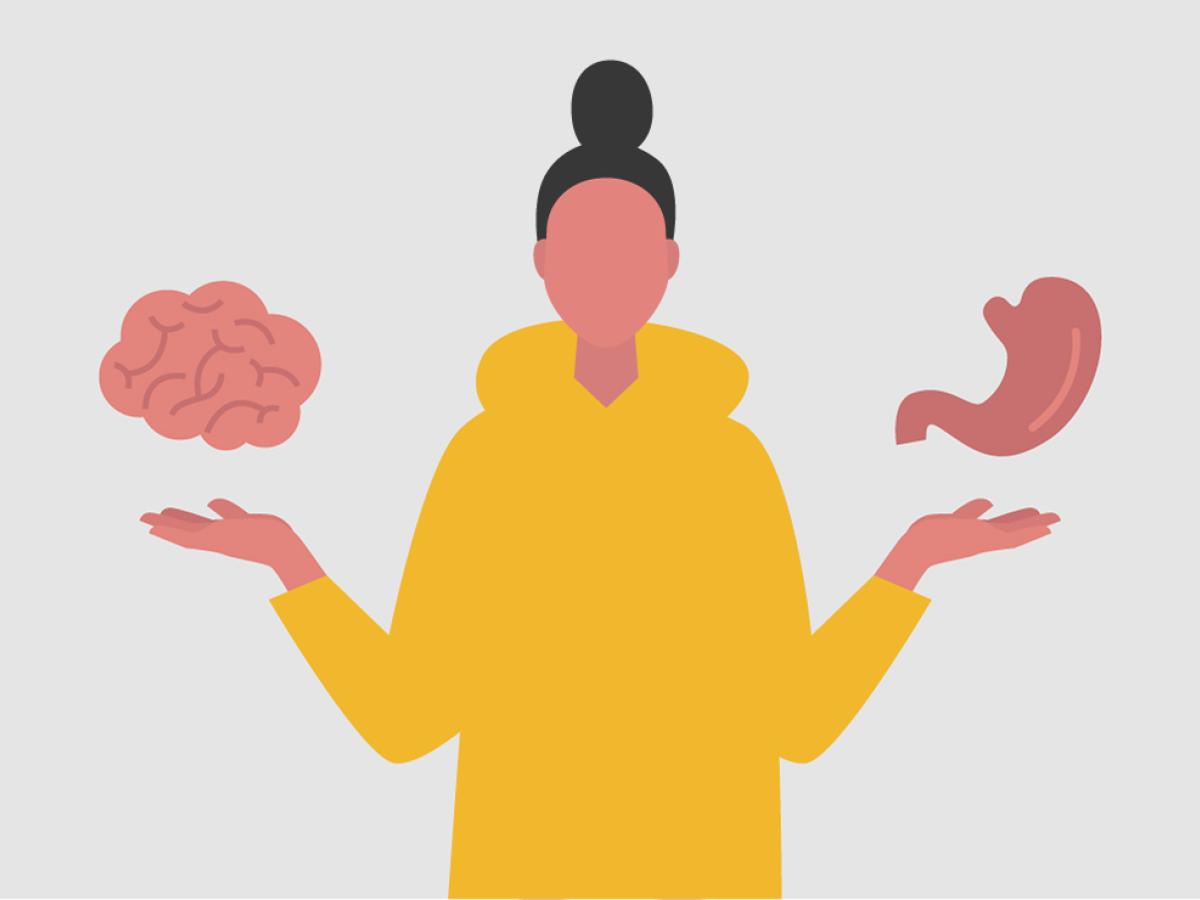Gut-Brain Axis: How Your Microbiome Affects Mental Health
Ever had a “gut feeling” about something—or noticed that a stressful day leads to stomach issues? That’s not just a quirky saying or coincidence. It’s a direct reflection of the powerful connection between your gut and your brain. Welcome to the gut-brain axis, a two-way superhighway of communication that’s changing the way we understand mental health.
From mood swings to anxiety, your gut microbiome plays a surprising and essential role in regulating your mental well-being. Let’s explore how the trillions of microbes in your digestive tract can influence your brain—and how you can support both for better health.
What Is the Gut-Brain Axis?
The gut-brain axis is the bidirectional communication system between your gut and your brain. This system includes neural pathways (like the vagus nerve), hormonal signals, immune factors, and microbial metabolites—all working together to keep both your digestive and mental systems in sync.
The star of this connection? Your gut microbiome—a bustling community of bacteria, fungi, and other microbes that live primarily in your intestines. These tiny organisms don’t just help you digest food—they play a major role in producing neurotransmitters, managing inflammation, and supporting your immune system.
When your gut is happy, your brain tends to follow. But when your gut is out of balance, your mental health can take a hit.
How the Microbiome Impacts Mental Health
Let’s dig into how those gut bugs influence your mood, focus, and emotional stability.
🧠 Neurotransmitter Production
Your gut microbes help produce several key neurotransmitters that directly affect your brain function:
- Serotonin: About 90% of serotonin—your “feel-good” chemical—is produced in the gut.
- GABA: A calming neurotransmitter that reduces anxiety.
- Dopamine: Linked to pleasure, motivation, and focus.
Imbalances in gut bacteria can lead to reduced production of these brain chemicals, increasing the risk of mood disorders like depression and anxiety.
🔥 Regulating Inflammation
Chronic inflammation is a known contributor to mental health issues. A healthy gut microbiome keeps inflammation in check by maintaining the integrity of the gut lining and preventing harmful substances from entering the bloodstream.
When the gut barrier is compromised (often called “leaky gut”), toxins and bacteria can escape into the bloodstream and trigger systemic inflammation—including in the brain. This neuroinflammation has been linked to depression, brain fog, and even neurodegenerative diseases.
⚡ Stress Response and the Vagus Nerve
The vagus nerve connects your gut to your brain like a telephone line. When your gut microbiome is thriving, it sends calming signals up the vagus nerve to reduce stress.
But if your microbiome is off balance, the signals sent may increase anxiety and activate the body’s stress response (aka fight-or-flight mode).
💥 Impact on Mood and Behavior
Animal and human studies have shown fascinating links between gut bacteria and behavior:
- Germ-free mice (born without gut bacteria) show higher levels of anxiety and stress.
- Transferring gut bacteria from a depressed person into a mouse can cause depressive symptoms in the mouse.
- Probiotic supplementation has been shown to improve mood and lower perceived stress in some studies.
The takeaway? Your microbiome doesn’t just influence your gut—it can change how you think, feel, and respond to the world.
Signs Your Gut Might Be Affecting Your Mental Health
If your gut is out of balance, your brain may send signals that something’s off. Look out for these signs:
- Persistent bloating or digestive discomfort
- Mood swings or irritability
- Brain fog or difficulty concentrating
- Increased anxiety or low mood
- Cravings for sugar or processed foods
- Trouble sleeping or feeling rested
The good news? With a few lifestyle tweaks, you can nourish your gut—and your mental health.
How to Support a Healthy Gut-Brain Axis
Creating harmony between your gut and brain doesn’t require a total life overhaul. Small, consistent habits can make a huge difference.
🥦 Eat a Gut-Friendly Diet
- Focus on prebiotic-rich foods (the fuel for good bacteria): onions, garlic, bananas, asparagus, oats.
- Add probiotic foods like yogurt, kefir, kimchi, and sauerkraut to repopulate your gut with beneficial microbes.
- Include fiber-rich plants for microbial diversity. Aim for a variety of fruits, vegetables, legumes, and whole grains.
- Limit processed foods, added sugars, and artificial sweeteners—they can disrupt your microbiome balance.
💧 Stay Hydrated
Water helps keep everything in your digestive system flowing and supports a healthy mucosal lining in the gut—which is key for communication with the brain.
😴 Prioritize Restorative Sleep
Lack of sleep negatively impacts your gut microbiome—and your mental health. Aim for 7–9 hours per night and stick to a consistent sleep-wake cycle.
🧘 Manage Stress Effectively
Chronic stress alters your gut bacteria and weakens the gut-brain connection. Try:
- Meditation or deep breathing
- Gentle movement like yoga or walking
- Journaling or talking with a friend
- Creative outlets like drawing or music
🚶♀️ Move Your Body
Exercise supports both brain and gut health by increasing microbial diversity, reducing inflammation, and boosting feel-good neurotransmitters. Even 30 minutes a day can work wonders.
🦠 Consider a Probiotic Supplement
While food is the best place to start, some people benefit from taking a high-quality probiotic—especially during or after antibiotic use. Look for strains like Lactobacillus and Bifidobacterium, which have been shown to support mood and mental well-being.
The Future of Mental Health and Microbiome Research
We’re only scratching the surface of understanding how deeply connected our gut and brain are. Researchers are actively studying:
- “Psychobiotics”—probiotics specifically designed to improve mental health
- How gut health influences conditions like autism, PTSD, and Alzheimer’s
- The role of the microbiome in personalized mental health treatment
As science evolves, one thing is clear: taking care of your gut is one of the smartest things you can do for your mind.
Wrapping It Up
The gut-brain axis proves that mental health isn’t just in your head—it’s in your gut, too. From neurotransmitters and inflammation to mood and memory, your microbiome is a key player in the way you feel, think, and respond to stress.
By feeding your body nourishing foods, managing stress, and embracing gut-friendly habits, you can support a thriving microbiome and a more balanced, resilient mind.
So next time you’re feeling off, check in with your gut. It might have more to say than you think. 💭🌿🧠





